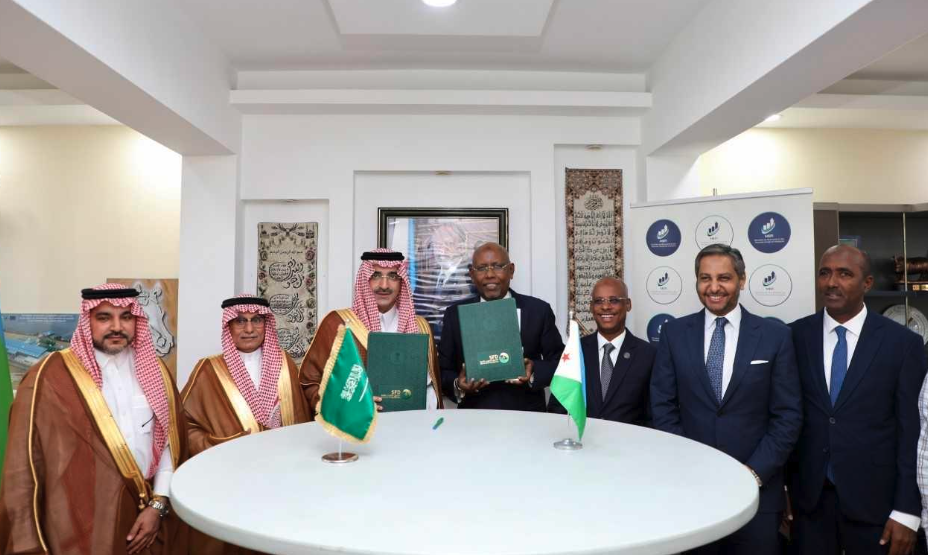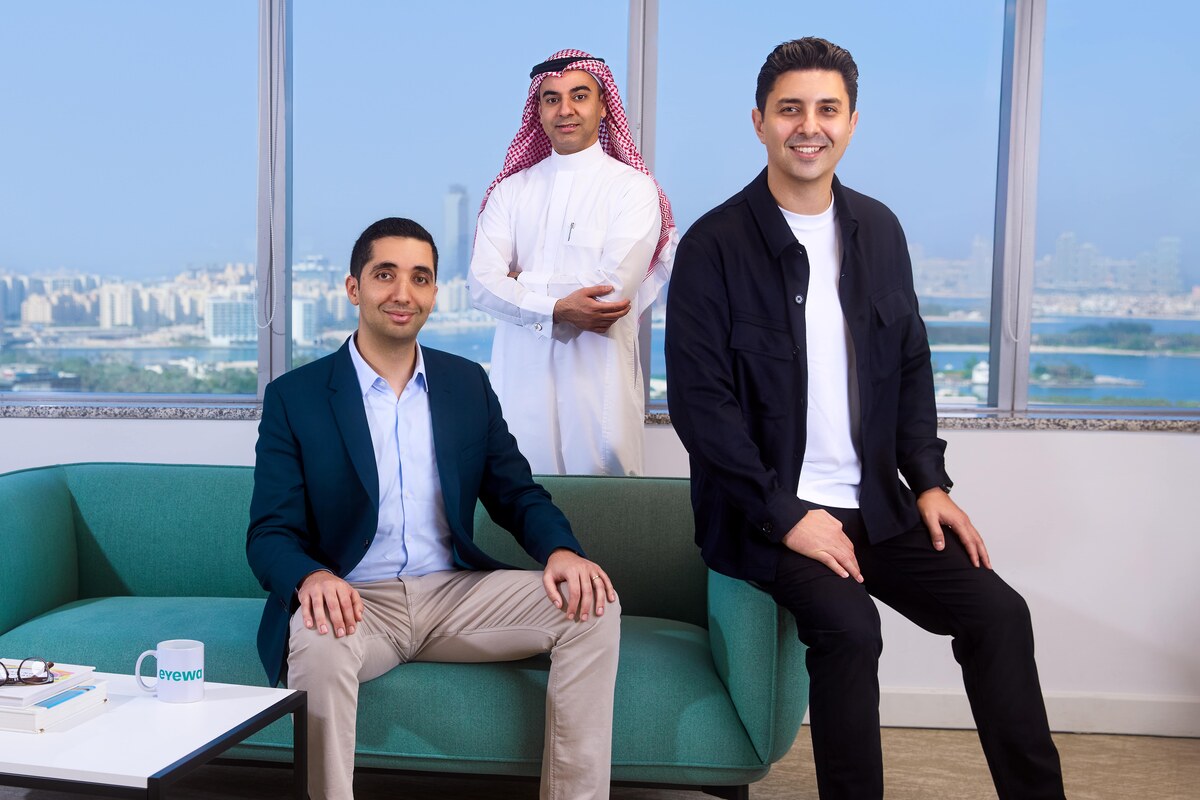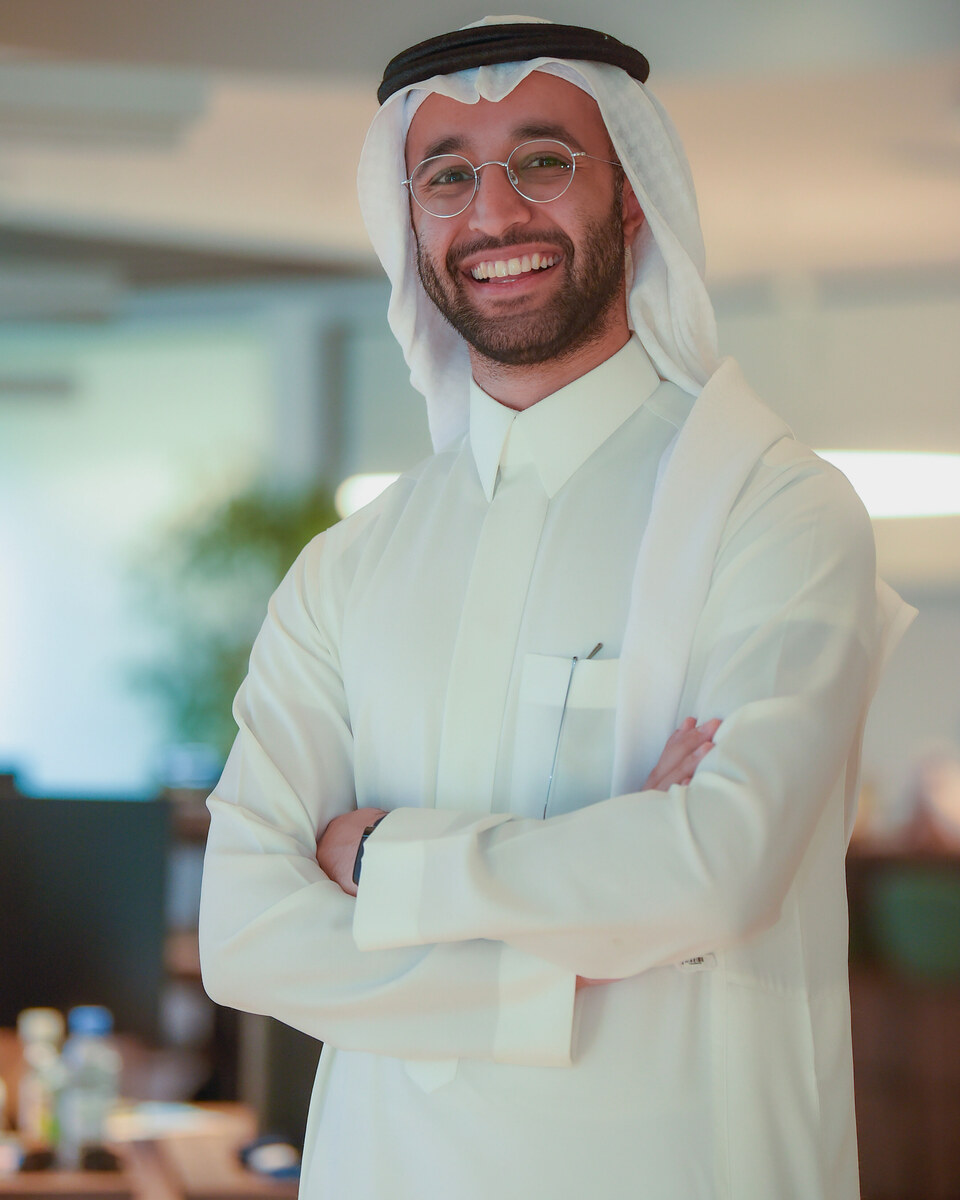RIYADH: The digital revolution within Saudi Arabia’s banking sphere has significantly enhanced the nation’s economic panorama, facilitating effortless financial transactions for customers, experts have told Arab News.
Situated in the heart of the Middle East, the Kingdom stands out not just for its deep-rooted history and cultural legacy but also for its swift embrace of digital advancements, notably within the banking domain.
In recent years, the nation has undergone a significant transformation in its banking sector, propelled by the ambitious Vision 2030 program led by Crown Prince Mohammed bin Salman.
This visionary endeavor seeks to broaden the economic landscape, diminish reliance on oil income, and propel the country forward into a new age of prosperity.
In an interview with Arab News, Saudi-based economist Talat Hafiz set out how the digital transformation has positively impacted the overall economic landscape of the country.
Hafiz said: “It has allowed (customers) to perform financial transactions and conduct financial businesses related transactions real-time around the clock and year round, which has facilitated doing business in the Kingdom and in turn have reflected positively on the overall economy, as it has saved time and efforts and ultimately cost reduction to businesses.”
Fabrice Franzen, partner at Bain & Co., told Arab News that the Kingdom has been one of the first countries to avail full digital banking licenses without the need for branches.
“SAMA (Saudi Central Bank) has actively promoted the digital bank model, and three licenses were issued to local investors and companies, which should go live imminently,” he added.
Franzen anticipated that this should create healthy competition with the traditional players and drive further innovation and enhance customer experience.
Infrastructure and government support
The journey toward digitalization commenced with substantial investments in telecommunications infrastructure.
This effort positioned Saudi Arabia as a frontrunner in digital regulatory maturity and network speed among G20 nations.
According to the International Telecommunication Union’s Digital Regulatory Maturity Index, the Kingdom secured the top spot in the Middle East and Africa and ranked ninth among G20 countries.
Notably, Saudi Arabia stood sixth globally in terms of the fastest data download speed in fifth-generation networks, showcasing its remarkable progress.
The rise of digital banks and banking solutions

STC Bank was given the go-ahead in 2021. Screenshot
Demonstrating the government’s backing for digital transformation within the banking sphere, the Saudi Cabinet greenlit the licensing of two local digital banks in 2021: STC Bank and the Saudi Digital Bank.
This involved the conversion of stc pay into a local digital bank, now known as “STC Bank,” equipped to conduct banking operations in the Kingdom with a capital of SR2.5 billion ($670 million).
Furthermore, an alliance of companies and investors spearheaded by Abdul Rahman bin Saad Al-Rashed and Sons Co. established another local facility named the Saudi Digital Bank, with a capital of SR1.5 billion.
The introduction of the Saudi Arabian Riyal Interbank Express, also known as SARIE – which translates literally from Arabic as “fast” – marked a significant turning point for the digital banking sector in the Kingdom.
This system not only boosts the efficiency of the national payment infrastructure but also aligns seamlessly with the ongoing developmental trajectory observed within the Kingdom’s payments sector.
According to Hafiz, this system provides the mechanism for all Saudi commercial banks to make and settle payments in riyals.
The economist added: “It provides the basis for improved banking products and services and is the foundation for the payments system strategy of the Kingdom.”
Hafiz asserted that SARIE is a “state-of-the-art payment,” as it provides the mechanism for banks to exchange funds transfer and direct debit messages safely and efficiently on behalf of their customers as well as for their own trading purposes.
SAMA has consistently demonstrated a strong interest in promoting safety and enhancing efficiency within payment systems, aligning with its overarching focus on financial stability, according to the economist.
As a result, the central bank plays a pivotal role in both the development and operation of payment systems in the Kingdom.
SARIE, for Hafiz, has undoubtedly represented a significant milestone, profoundly impacting consumer behavior and the operational efficiency of financial institutions across the nation.
Saudi Arabia’s support for fintech companies
The rollout of accelerator programs aimed at bolstering the expansion of emerging fintech companies marked a significant catalyst for the sector’s advancement.
This initiative was crafted to facilitate the transfer of best practices, tools, and resources to empower emerging firms in the financial technology domain, fostering their growth and amplifying their presence within the Kingdom.
SAMA has been actively supporting the emergence of the fertile fintech scene in Saudi Arabia, providing a wide range of licensing options, according to Bain and Co.
“Local investors (institutional, family offices) are also actively investing in fintech, providing a healthy flow of seed capital and supporting subsequent capital raises,” the partner told AN.
He added that Saudi fintechs benefit from a sizable domestic market of over 30 million residents, enabling rapid scaling.
Hafiz noted the significance of this program particularly when it comes to supporting new startup fintech companies because such programs are carefully designed to help fintech companies accelerate their growth by providing different services that help them through a fast-track program to scale up their businesses.
“The national Fintech Strategy goals and objectives are to create 525 Fintech companies in the Kingdom that create 18,000 Fintech job opportunities and contribute SR13.3 billion to the Kingdom’s Gross Domestic Product by 2030,” the economist highlighted.

The Saudi Central Bank has supported the growing fintech scene in the Kingdom. File
Rapid growth in electronic payments
By the end of 2021, the retail sector in the Kingdom witnessed a significant milestone in digital transformation: electronic payments accounted for 57 percent of total transactions, surpassing the target set by Vision 2030, according to data from the central bank.
Additionally, Saudi Arabia achieved the highest adoption rate of Near Field Communication, NFC, payments, reaching 94 percent, outpacing even nations in the EU, as well as Hong Kong, Canada, and the Middle East and North Africa region.
Financial literacy and inclusion
Financial inclusion in Saudi Arabia aims to provide affordable financial services to all citizens, aligning with government efforts to enhance financial literacy and economic participation.
This is becoming a major concern for the financial authorities in Saudi Arabia, according to Hafiz.
He attributed it to the aim of making financial services available to all individuals in the Kingdom at affordable pricing, supporting the government’s efforts connected to raising the financial literacy in the society.
One of the main goals and objectives of the Financial Sector Development Program – a Saudi Vision 2030 program – is to raise individuals’ financial literacy through proper financial planning and investment.
“Policymakers in Saudi Arabia have implemented robust policies that encourage and ensure the enhancement of financial inclusion, since it has been identified as imperative for economic growth,” Hafiz added.
According to Franzen, the Financial Services Development Program has set an ambitious trajectory to develop the sector as a way to support financial inclusion, literacy, and efficiencies.
“This is benefiting the economy and Saudi citizens as they have enhanced access to cheaper and more secure banking solutions,” he added.
Diverse digital banking ecosystem
The digital banking landscape in Saudi Arabia is vibrant, offering a range of services to cater to evolving consumer needs.
“With three full digital banking licenses approved, Saudi Arabia is at the forefront of promoting full digital banking solutions – at par with the UAE and well ahead of other GCC (Gulf Cooperation Council) countries,” Franzen said.
He observed that the Kingdom could rely on advanced regulations for biometric customer identification and centralized databases, greatly easing digital onboarding and authentication.
Online banks, neo-banks, challenger banks, and Banking-as-a-Service all play roles in the digital revolution.
“While neo-banks and challenger banks are still nascent in the market, one should expect that they will drive a higher speed of innovation and will put pressure on traditional players,” Bain and Co. partner emphasized.
“Similar trends have been observed in other markets such as the UK when new digital banks came to challenge the High Street incumbents,” he continued, adding: “This has led to cheaper and more reliable financial services becoming the norm in the UK market (no or very low fees, instant solutions), to the benefit of the customer.”
According to a report by KPMG, a global network of professional firms providing financial services, neo-banks hold a 20 percent market share in Saudi Arabia’s digital banking sector.
Furthermore, online banks claim 30 percent, while the Banking-as-a-Service segment is projected to reach a market valuation of $7 trillion by 2030, with a yearly growth rate of 26 percent.
Enhanced customer experience
Banks are prioritizing improving customer experience through advanced technologies. AI-driven chatbots offer instant support, and data analytics enables personalized financial advice. These advancements streamline operations and cultivate customer loyalty.
“In Saudi Arabia, 95 percent of people who hold bank accounts and have access to the internet prefer digital over traditional banking channels, such as physical branches and phone banking,” according to a report by Backbase, a Dutch financial technology company.
Bain and Co. partner said that “while customers have grown accustomed to managing their lives from the comfort of their home on their phone (ride-hailing, food delivery, online shopping, home entertainment), they expect a similar service from the banks.”
Franzen added that mobile solutions offer an attractive alternative for those living in remote areas of the Kingdom where branch density is much lower than in the main urban hubs. It also offers cheaper banking solutions for those with lower income.
Future trends and projections
With the rise of pure digital banking entities intensifying their operations, a notable trend is emerging: a surge in account openings, both initially and for secondary accounts, as customers explore branch-less alternatives.
Franzen said that as confidence in these digital-only players grows, a shift towards them serving as primary banks is anticipated, akin to the trajectory witnessed in countries like the UK, where neo-banks have secured over 25 percent of primary banking relationships.
“One key potential technology unlock to drive digital financial services would be increased flexibility on cloud usage and data residency rules,” he added.




























